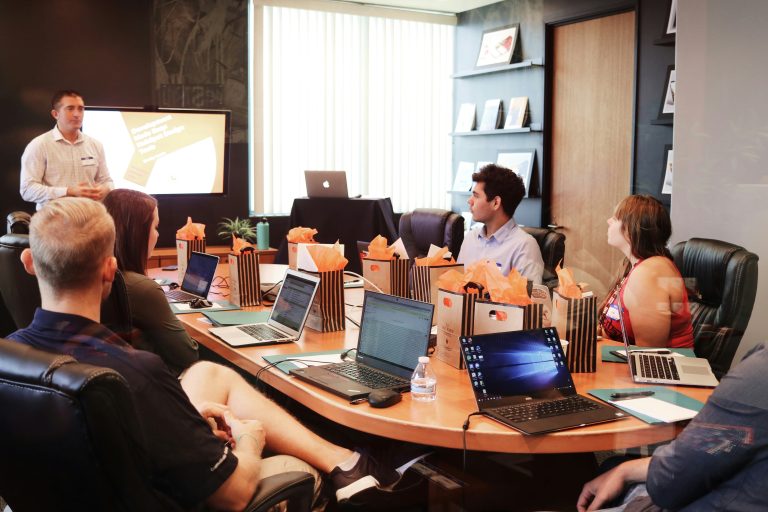As retail and hospitality reopens, businesses will find it hard to deliver a perfect customer experience unless they respond to staff issues over a lack of communication and training, improving both formats and frequency, says Fabrice Haiat, CEO of YOOBIC.
With indoor hospitality now reopened, consumers are returning with heightened expectations on service particularly as they brave continued impediments, such as mask wearing, social distancing and queuing, which are predicted to continue even after legal restrictions are lifted.
But how do you make sure that your employees, who deliver the vital face-to-face interactions with customers and clients, receive the right communication and training at the right time?
Creating the motivation, and sustaining it, to enable staff to deliver a superior service to customers has spawned the science of Employee Experience (EE), which in turn has created a large body of literature devoted to the subject. The importance of Employee Experience has risen over the past years as employers realised the direct correlation between employee comms and training, and their performance. Indeed, employees who received regular comms and training feel valued and are more motivated, which is particularly important for store and hospitality staff.
But this is only the beginning. As consultants Mckinsey explains: “With employee engagement, Human Resources tends to drive interaction in one direction – company to employee – based on insights from employee surveys. These surveys offer a sense of how employees feel at a moment in time, but they don’t provide a true sense of how work gets done or ties to business performance.”
Staff may get comms and training but not how they want it
For the longest time, communication and staff training were a one-way street. The company sent comms and created the training and the employee received them. Job done. Box ticked. But no matter the quality of the comms and training and accompanying materials, their effectiveness still depends on one more factor: are the employees sufficiently trained – and motivated – to give good service?
First, we need to understand what things look like now from the employee’s point of view. In the Frontline Employee Workplace Survey 2021*, frontline staff are saying they feel disconnected from head office, that they want more training and coms in the flow of work rather than traditional ‘top down’ information and ‘classroom’ style training, and fewer administrative tasks.
The survey asked staff what they think the answer is. Nearly two fifths (39%) of hospitality staff wanted training to be delivered digitally. And almost three quarters (74%) said they would like that training to be mobile, as it would give them control – they could choose when to take the training and access it on their own device, at any time. This desire for device based delivery is even greater among younger ‘digital natives’, whose mobile devices form part of their daily life.
Mobile comms and learning is what frontline workers want and yet the research also showed that only 11% of them receive training via a mobile or app.
Tomorrow’s skills are not the same as today’s
Contrast this finding with the World Economic Forum saying that by 2022, “54% of all employees will require significant up-skilling, as the nature of work and the skills required continue to change.”
The research findings also show a significant digital training gap, but also that training is not not frequent enough, suggesting that the training box is merely being ticked without the necessary nurturing, monitoring and two-way communications needed to truly improve employee experience. 40% of frontline workers only received training once a year or less, increasing to 46% of hospitality employees.
49% of hospitality staff said they wanted training to be continuous, with small modules or miniature training sessions delivered on an ongoing basis in the flow of work, for example by having the ability to scan a QR code in-store to access information or training about a product range. 43% wanted to access training on demand, allowing them to continually keep abreast of changes to policy, procedures and compliance. Employees clearly want better training and by putting them in control, it not only allows them to learn at their own pace, but ensures continuous improvements to performance to be made on an ongoing basis.
The conclusion is simple; employees are not being given enough of the training that they want or need, nor is this training being delivered through the digital channels they now want to receive it on. And this isn’t then supporting them to be empowered and motivated to deliver a great experience to the customer.
How to act now
Employers need to harness the power of mobile devices and deploy apps that empower and motivate their employees to give good service.
A single digital solution can ensure real-time delivery of communication and mobile training to a dispersed workforce. Frequency and delivery in the flow of work are also paramount for agile operations execution. Execution requirements evolve quickly in hospitality, and so these businesses have to ensure that staff in any location are complying with stock management, regulations, compliance,promotions and, crucially, customer service delivery.
Ultimately, this is all about the customer. They want to make meaningful connections with staff and expect responses that are empathetic, helpful and personal. Staff that are well trained and informed in ways that suit them are motivated to act in the same way.
As the late co-founder of Southwest Airlines. Herb Kelleher once said, “If the employees come first, then they’re happy. A motivated employee treats the customer well. The customer is happy so they keep coming back, which pleases the shareholders. It’s not one of the enduring green mysteries of all time, it is just the way it works.”









